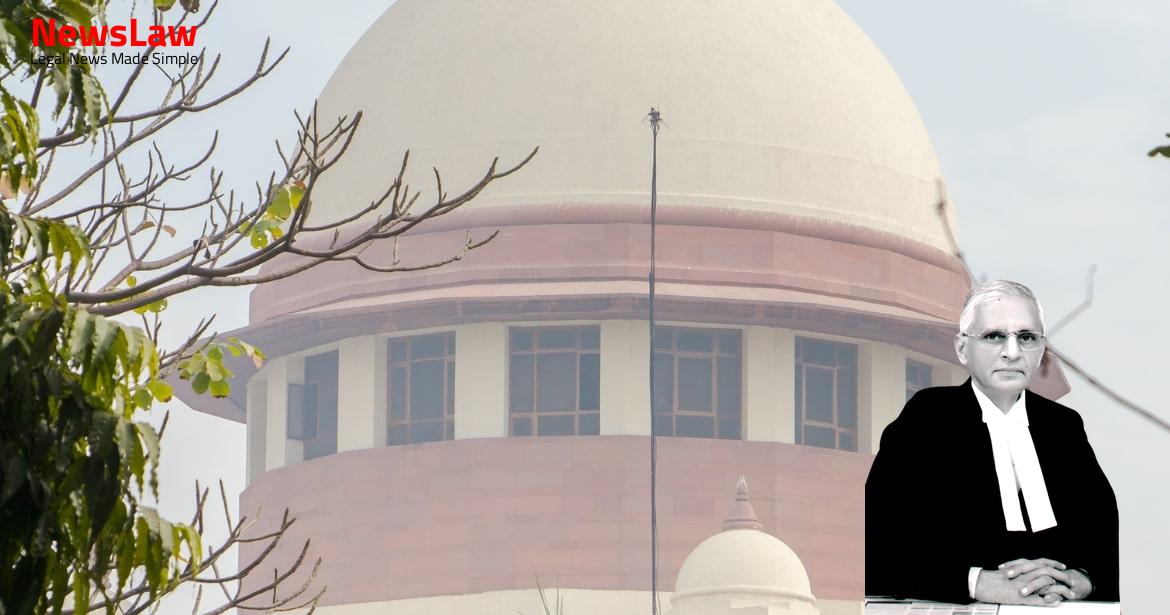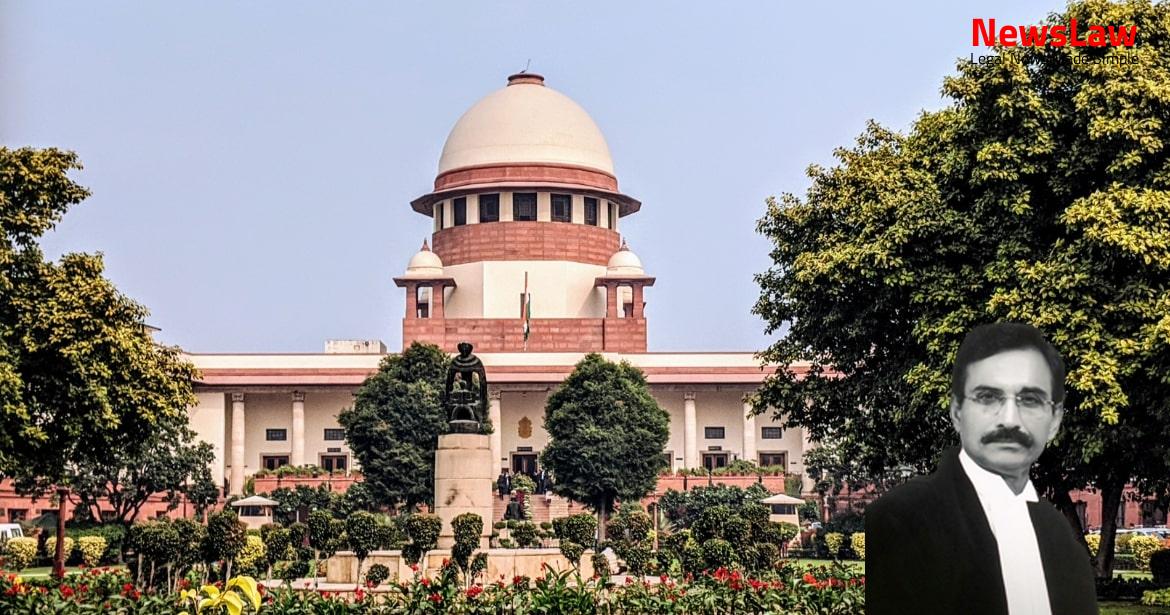A recent judgement by the Supreme Court of India in the case of Manoj Kumar v. XYZ has brought clarity on jurisdiction issues under the Domestic Violence Act. The case revolves around the petition filed by Manoj Kumar against his wife, XYZ, regarding instances of domestic violence. The Supreme Court’s decision partially allowed the appeal, directing the VI Additional Metropolitan Magistrate at Bengaluru to proceed with the case. This ruling sets a significant precedent in understanding jurisdictional complexities in domestic violence cases.
Facts
- The marriage between Manoj Kumar (appellant No.14) and his wife was solemnized on 01.05.2006 in Rajasthan.
- After the wedding, the wife expressed her desire to stay in Bengaluru for some time, which was agreed upon by appellant No.14 with the understanding that she would stay at her parent’s house for a short period.
- The wife filed a complaint under Sections 18, 19, and 20 of the Protection of Women from Domestic Violence Act, 2005 against her husband (appellant No.14), her in-laws (appellant Nos. 1 and 2), and other relatives in different locations.
- Appellant No.14 had earlier filed a petition for restitution of conjugal rights under Section 9 of the Hindu Marriage Act before the Family Court in Chennai.
- The High Court of Karnataka dismissed the petition filed by the appellants, stating that the Metropolitan Magistrate in Bengaluru has the jurisdiction to entertain the complaint filed by the wife.
- The learned Magistrate in Bengaluru issued notice to the appellants on 16.04.2015, asserting jurisdiction to entertain the petition filed by the respondent under Section 27 of the Domestic Violence Act.
- The High Court’s impugned judgment dismissed the petition, stating that the complaint filed by the respondent in Bengaluru was maintainable under Section 27 of the Domestic Violence Act despite instances of domestic violence in Chennai, Rajasthan, and Gujarat being mentioned.
- The appellants have filed this appeal against the High Court’s decision.
Also Read: Judgment on Service of Summons and Authenticity of Power of Attorney
Arguments
- Learned counsel for the appellants argued that the respondent filed the complaint to harass the family members of her husband.
- The respondent has included family members from different states in the complaint, which is considered an abuse of the court process.
- Ms. Nidhi, representing the respondent, cited Section 27 of the Domestic Violence Act to argue that the court where the complainant resides has jurisdiction to hear the case.
- Mr. Balaji Srinivasan, representing the appellants, argued that the court in Bengaluru lacks jurisdiction as neither the marriage took place there nor was it the matrimonial house.
- Allegations against the family members of the husband are vague and unsubstantiated according to learned counsel.
- The respondent is currently residing within the territorial limit of the Metropolitan Magistrate of Bengaluru City.
- The High Court held that the Metropolitan Magistrate at Bengaluru has jurisdiction to entertain the complaint.
- The complaint outlines several instances of domestic violence against the husband-appellant and other relatives, particularly the father-in-law and mother-in-law.
- The appellant’s relatives are accused of harassing the respondent, taking away her jewellery, and pressuring her to buy properties.
- The High Court refused to quash the order of taking cognizance, upholding the allegations of domestic violence.
Also Read: Balaji v. Nargolkar: Auction Sale Set Aside
Analysis
- Appellants No.3 to 13 cannot be held responsible for domestic violence as there are no specific allegations against them.
- Criminal case against appellants No.3 to 13 should be quashed due to lack of specific allegations.
- Appellants No.7 to 10 are residents of Rajasthan, and No.11 to 13 are residents of Gujarat.
- Intention of the legislature under Section 18 of the Act is to provide more protection to women.
- The matrimonial house of the Original Name and Appellant No.1 is in Chennai, establishing jurisdiction of the Bengaluru Court.
- Appellants No.1 to 6 and 14 are residents of Chennai.
- Metropolitan Magistrate Court in Bengaluru has jurisdiction as per Section 27 of the Act.
- Before issuing notice for domestic violence, the court needs to be prima facie satisfied of its occurrence.
- Any order made under this Act shall be enforceable throughout India.
- The court of Judicial Magistrate of the first class or the Metropolitan Magistrate has jurisdiction to grant protection orders and other orders under this Act and to try offences under this Act.
- The competent court is determined based on where the person aggrieved permanently or temporarily resides, where the respondent resides, or where the cause of action has arisen.
- The court also has the power to order monetary relief to the aggrieved party.
- The contention raising objection as to the jurisdiction of the Metropolitan Magistrate Court at Bengaluru has no merit.
- The court has not expressed any opinion on the merits of the matter.
Also Read: Jurisdiction of Family Court in Cases under Muslim Women’s Protection Act
Decision
- Crl. Misc. No.53 of 2015 filed against appellants No.3 to 13 is quashed
- The appeal is partly allowed
- The VI Additional Metropolitan Magistrate at Bengaluru is directed to proceed with Crl. Misc. No.53 of 2015 against appellants No.1, 2, and 14
- The magistrate is instructed to dispose the case in accordance with the law
Case Title: SHYAMLAL DEVDA Vs. PARIMALA (2020 INSC 77)
Case Number: Crl.A. No.-000141-000141 / 2020



